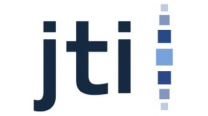Journalism Trust Initiative

What is the JTI?
The Journalism Trust Initiative (JTI) is an international standard, a label, for showcasing and promoting trustworthy journalism.
Why is it necessary?
This initiative was born from a simple realization: journalism is undergoing direct competition from manipulative content that proliferates in the digital space: propaganda, advertising, disinformation.
This has resulted over the years in declining audiences, mistrust of the media, and falling revenues from advertising, subscriptions, and purchases.
The goal of the JTI is to provide a transparent mechanism for curbing misinformation and providing tangible rewards for ethical and professional journalism.
Designed as an ISO standard, the JTI standard was developed by a committee of 130 experts including journalists, institutions, regulatory bodies, publishers, and new technology players.
The full details of the protocol are available here: journalismtrustinitiative.org.
What are the benefits?
The benefits of the JTI have virtuous repercussions at all levels of the information production chain. They involve multiple actors:
- Media outlets assess their compliance with the standard, publish their transparency reports, and then receive independent certification. In doing so, the JTI provides an incentive for the media to improve the way they operate.
- Citizens use the JTI indicators to make informed choices about the information they consult.
- Advertisers rely on the JTI to select the media with which to associate their image, align their advertising spend and thus reinforce the security of their brand.
- Social media, algorithms, and search engines use the JTI data to index and promote compliant sources.
- Regulators and state actors see the standard as an independent regulatory mechanism for allocating grants and benefits to media outlets
- Media development donors screen projects according to the JTI criteria.
The standard also paves the way for all kinds of auditing programmes.
Key indicators
Adopted on a voluntary basis as a self-regulatory mechanism, the JTI is based on decisive and objective criteria. These criteria relate to the transparency of the media and the professionalism of the editorial processes, including:
- the application of an editorial line
- the existence of correction mechanisms
- the management of automatically generated content
- internal/external control
- transparency on the identity of the owners
- the income sources
- proof of compliance with professional guarantees
The JTI differs from other trust indicator projects in that it focuses solely on the process, the level of “making” of journalism and not on individual content, dealt with on a case-by-case basis.
The JTI process in three steps
1. Self-assessment
This is carried out within a formal framework of reference, identical for all media and leads to the publication of a transparency report.
2. Certification
As an option, an external and independent audit by an accredited body certifies the conformity of the transparency report.
3.Benefits
Structural and long term, including algorithmic indexing based on JTI criteria and improved revenues.
Self-assessing with the JTI
Do you represent a media organisation and want to examine your practices according to the JTI standard? Reporters Without Borders provides you with this self-assessment platform jti:app.
For further information, contact JTI at this address: jti(a)rsf.org, and visit its website: journalismtrustinitiative.org
